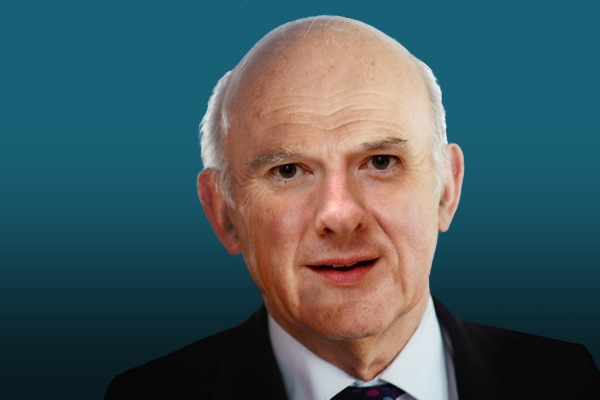By this stage in the Coalition, everyone would have expected at least one major bust-up between George Osborne and Vince Cable. But his evidence to today’s Treasury Select Committee suggested that the Chancellor isn’t so much involved in a stand-off with the Business Secretary as he is taking on his point of view. It was significant how many times Osborne had to explain a softening in what were previously hard-and-fast economic rules, and hard-and-fast policies.
His refusal to rule out replacing the Bank of England’s inflation target with a growth target is the most significant sign of a coalescing between the two men. Osborne told the committee that the current target ‘has served this country well and provided stability’, but he added that he was ‘glad’ the next Bank of England governor Mark Carney was involved in the ‘debate about the future of monetary policy’. Moving to a growth target would be an endorsement of Vince Cable’s focus on growth rather than deficit reduction.
Then there was the debt target, which Cable has always felt to be an unnecessary rule. Osborne defended his decision to miss it rather than enact further sweeping cuts by saying that ‘of course I very much wanted to hit the target’, but that he would rather avoid a large swathe of cuts ‘and giving myself the satisfaction of hitting the target and the impact that would have on the economy and the unnecessary pursuit of a target’. Osborne would not have described aiming to have debt as a percentage of GDP falling by 2015/16 as being an ‘unnecessary pursuit’ this time last year, but Cable probably would have done.
And there was the threat to the UK’s top notch AAA credit rating. Where previously the Chancellor had trumpeted the UK’s continuing golden status with the ratings agencies as a sign that his economic policies were the right ones, he now said it was ‘one test alongside others’. Cable has always had some choice words about credit ratings agencies, arguing that borrowing costs did not rise significantly for the US after its own downgrade, and that the agencies themselves do not have the world’s greatest track record. Now it seems Osborne is happy to join him in that opinion.
But as if to underline that just because things hadn’t quite worked out as perfectly as he’d hoped, it didn’t automatically mean that Labour’s policy alternative was the right one, Osborne repeatedly attacked Labour on its opposition to the Welfare Uprating Bill. He remains keen to exploit the dividing line between the two parties, while Cable remains keen to distance himself from some of Osborne’s language on welfare. His performance today underlined his ability as a political strategist.
It wasn’t possible to have a credible fiscal plan, he said, if you thought you could deal with the deficit without touching the welfare bill. ‘You can’t just say I oppose this, I oppose that,’ he said disparagingly, repeatedly mentioning the choices that he had had to make on welfare, by way of contrast to the picture of constant opposition that he was painting for the Labour party. He also listed decisions he had taken on reducing that bill, including decoupling benefits from inflation. As he mentioned each cut, he added: ‘Opposed by the opposition, opposed by the opposition.’







Comments